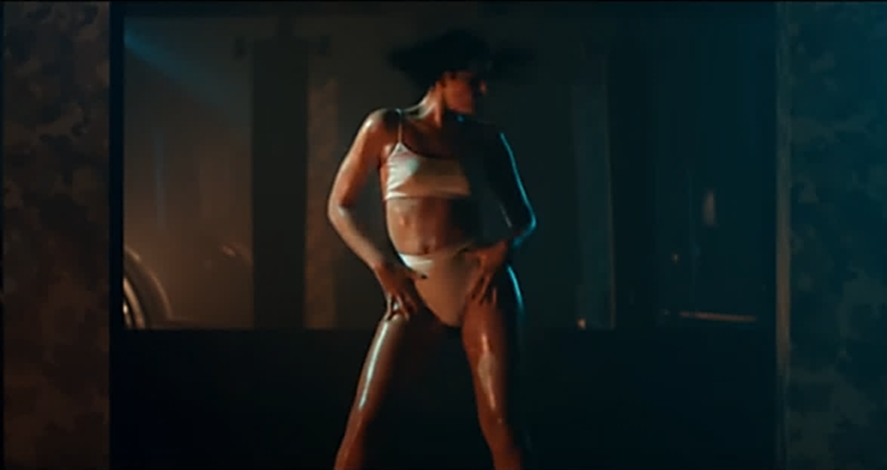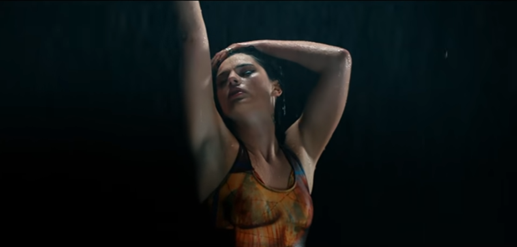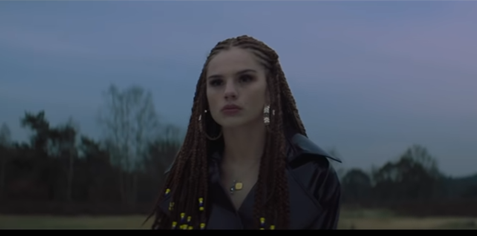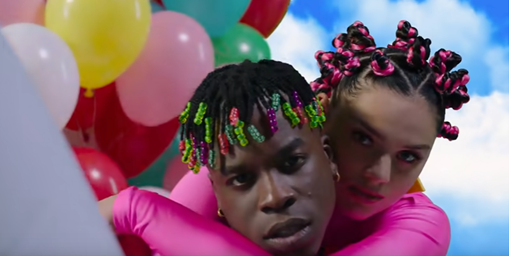Americanization
Americanization of contemporary female hip-hop artists
African Americans, among which hip-hop was born, inspired many artists around the world with hip-hop music. Although different sub-genres are formed in the world, it all stems from its origin in the United States. Women, and especially women of color are often degraded and disrespectfully sexualized in hip-hop music performed by men. To turn this negative representation around, African American women in pop and hip-hop music use sexualization as a form of self-empowerment and sexual liberation.
Self-Empowerment?
Instead of being called a ‘bitch’ or a ‘hoe’ by male rappers, women started to use these words signaling they can take care of themselves. On the one hand, women are taking a lead in creating their own narratives. On the other hand, it tells the narrative that to earn money and have a number one song on the Billboard charts, women need to have sexual content in their hip-hop music. This formula of hyper-sexualization has brought female artist success in the sense of gaining views, having streamers, and being well known to the public. The spread of these sexualized images raises some serious questions to what extent it negatively impacts the youth. Sexualization of the female body contributes to the fantasy of beauty standards in which women are expected to look or act a certain way. When frequently exposed to sexually explicit media, women have a higher level of body shame and self-objectification. What do you think of women being sexualized in music videos? Why do we look up to these women as role models?

Screenshot of a sexy dance move performed by Famke Louise, “Sexy Loca,” 2020, (0.38). Image © Famke Louise, and Afro Bros. “Sexy Loca.” YouTube, Uploaded by Famke Louise, 24 January 2020. https://www.youtube.com/watch?v=DCOSRnNQ4fo
Hypersexualization
While developing their style, Dutch artists are influenced by African American hip-hop artists in which women have an ambiguous hypersexualized position. Famke Louise, a Caucasian Dutch artist, is influenced to accept the sexualization of women, but then again, she is promoting it in her hypersexualized video clips. Her song “Sexy Loca” is entirely sexually intended in which she represents herself as someone sexually attractive who makes a guy’s mind go crazy (loco), while singing that she knows how good her butt (booty) looks. In the song, she sings to be okay with people secretly taking pictures of her and publishing them online. While she does not dance much in the video, she performs many allegedly sexual moves in her underwear by for example “shaking her ass”. The dark backgrounds and the water add an extra erotic effect to the song. Because of the water her shirt even becomes translucent portraying parts of her breast.

Screenshot of Famke Louise erotically rubbing over her body, “Sexy Loca,” 2020, (1.49). Image © Famke Louise, and Afro Bros. “Sexy Loca.” YouTube, Uploaded by Famke Louise, 24 January 2020. https://www.youtube.com/watch?v=DCOSRnNQ4fo
Are we free to choose our hairstyle?
Famke Louise represents herself with African American hairstyles. In this fragment of the video clip Fan by Ronnie Flex and Famke Louise, these kinds of braids are a hairstyle traditionally worn by women of color. Black hairstyles have a long history. In African cultures, someone’s hairstyle reflected their identity showing their tribe affiliation, status, sex, age, and occupation. This identity was taken from them when their heads were shaved by their masters during slavery. They needed to adopt straight hair as the White Europeans had. In the 60’s and 70s hairstyles such as cornrow, afro, and dreadlocks were used as political statements and self-empowerment among African Americans.

Screenshot of Famke Louise with braids, “Fan,” 2018, (0.32). Image © Ronnie Flex, and Famke Louise. “Fan.” YouTube, produced by Jack $hirak, Ronnie Flex & Jordan Wayne, uploaded by TopNotch. 2 March 2018, https://www.youtube.com/watch?v=eM2kZnyUfWs
The hairstyle of the Bantu knots that Famke Louise is wearing in the video of Slide by herself and Caza is a traditional African hairstyle that has been around for over 100 years. Today, Black women wear this hairstyle with pride. Many Black women do not know where in Africa their roots lie but keep traditions alive that have been passed down from multiple generations. Bantu used to describe ethnic groups in southern Africa that spoke various forms of the Bantu language. Black hairstyles, like the Bantu Knots, have been used in fashion industries by White models and celebrities without giving credit to the Black community.

Screenshot of Caza and Famke Louise having Bantu Knots, “Slide,” 2018, (0.55). Image ©
Caza, and Famke Louise. “Slide.” YouTube, produced by Vlado, uploaded by Famke Louise, 21 September 2018, https://www.youtube.com/watch?v=0sdTNiGewB8
African American culture is dominating the mainstream hip-hop culture, but then again, cultural appropriation is threatening Black hairstyles. When White women remove the roots and cultural significance by taking the hairstyle out of its context, it suddenly became fashionable or a “new” trend. However, women of color were perceived as ghetto, and some have lost their job for having “too ethnic” or “unprofessional” hairstyles. In both songs, it could be challenged if Famke Louise is taking the hairstyle out of its context. This leads to the question of intersectionality and cultural appropriation when White artists like Famke Louise adopt characteristics of African American women that hold a sensitive history.